September 23, 2024 | 10:52 GMT +7
September 23, 2024 | 10:52 GMT +7
Hotline: 0913.378.918
September 23, 2024 | 10:52 GMT +7
Hotline: 0913.378.918
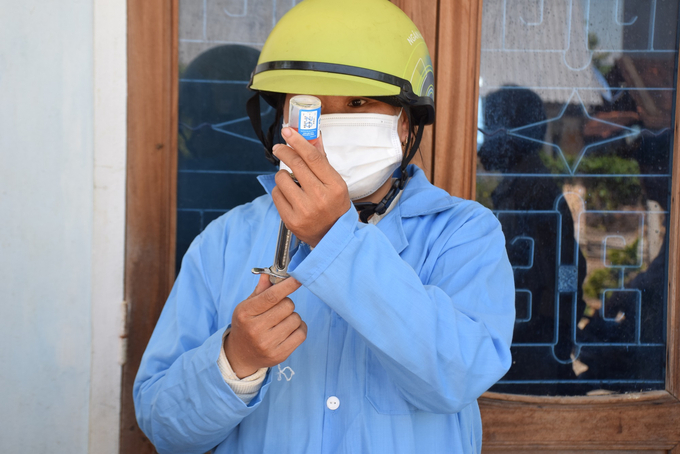
Lam Thi Hanh, a veterinary officer at Nhon Hoa ward, during a mass vaccination campaign against lumpy skin disease for cows in the local area. Photo: V.D.T.
During a business trip to Nhon Hoa ward (An Nhon town, Binh Dinh) to learn about the cattle farming situation, we met Lam Thi Hanh, a veterinary officer of the ward, and a private veterinarian who went to vaccinate the cows in the area against lumpy skin disease.
Nhon Hoa is a locality with a strong movement of livestock production in An Nhon town. There are 9 areas in Nhon Hoa ward, and each area was assigned a village-level veterinary officer at one point. The village-level veterinary officer was responsible for checking the livestock situation in the area, vaccinating livestock when it was time for centralized vaccination.
At that time, the commune-level veterinary officers only supported the village-level veterinary officers in centralized vaccinations and epidemics and reported to the veterinary officer of higher level about the livestock and epidemic situation in the area. After the village veterinary system no longer existed, all the tasks that the village-level veterinary officers had previously undertaken were now placed on the shoulders of the commune-level veterinary officers.
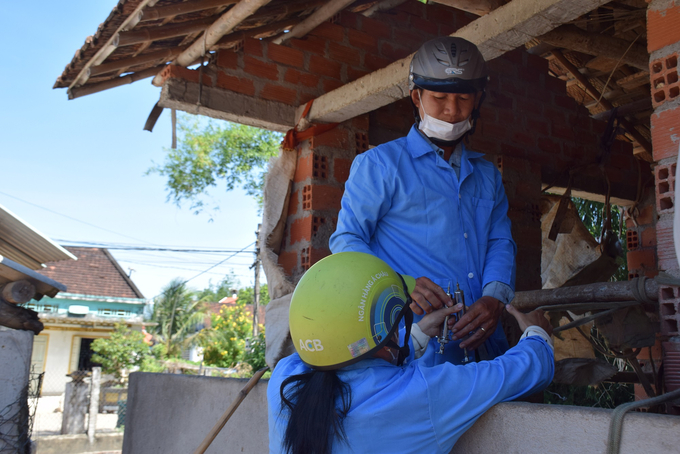
Lam Thi Hanh, a veterinary officer at Nhon Hoa ward, supports private veterinarian Nguyen Duc Lap in the lumpy skin disease vaccination campaign for the local herd of cows. Photo: V.D.T.
Hanh’s current job is to vaccinate cattle and buffaloes against foot-and-mouth disease twice a year and vaccinate against avian influenza all year round.
“I have no time off. During the mass vaccinations, I cannot vaccinate more than 3,000 cows within one month on my own, so I have to ask for help from private veterinary services.
“All the wages the People's Committee of Nhon Hoa ward supported me during the mass vaccination campaign, I paid to the private veterinarians. It is fine if I work for free. As long as the livestock of the people were fully vaccinated, I felt secure. Not to mention that if there was an epidemic in the livestock herd in the area, whenever the farmers call me, I have to be there to handle it and prevent the spread of the disease," Hanh said.
The work is constantly stacking, but currently Hanh only enjoys the regime with a salary coefficient of 1.3 compared to the basic salary. The actual salary that Hanh and 15 other commune and ward level veterinary officers in An Nhon town receive is only over VND 2.6 million/month, and there are no other benefits, not worth the effort and time spent. With a meager income, Hanh has to work extra at An Nhon concentrated animal slaughterhouse to have money to take care of her two children's education and family expenses.
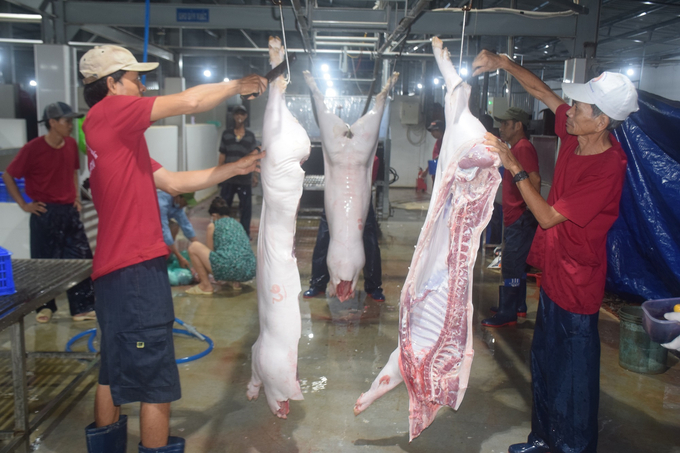
An Nhon concentrated animal slaughterhouse operates all night. Photo: V.D.T.
Working overnight in the concentrated slaughterhouse
According to Huynh Van Thanh, a veterinary specialist at the An Nhon Town Agricultural Service Center, the unit is currently contracting with 8 commune and village level veterinary officers, including private veterinarians who have previously been trained to work at the An Nhon concentrated animal slaughterhouse. There are 4 veterinary officers from the communes and wards of Nhon An, Nhon Hoa, Nhon Phong, Nhon Hung and 4 village-level veterinary officers from the communes and wards of Nhon Hung, Nhon Hanh and Nhon Thanh.
Veterinary staff working at the An Nhon concentrated animal slaughterhouse receive a salary of VND 6 million/person/month. However, not everyone has the conditions to have a part-time job like the 8 veterinary staff mentioned.
In An Nhon town, there are currently more than 10 commune-level veterinary officers and hundreds of village-level veterinary officers who now have no part-time jobs. Some commune-level veterinary officers are practicing private veterinary services, village-level veterinary officers work as construction workers' assistants and take on whatever jobs they can find.
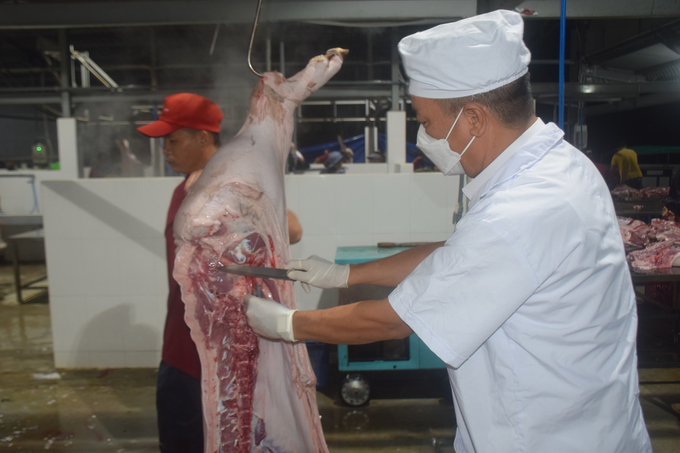
Veterinary staff in charge of slaughter control at the An Nhon concentrated animal slaughterhouse have to work all night. Photo: V.D.T.
Veterinary staff in communes and wards who have extra jobs at the concentrated slaughterhouses have to work all day and night. During the mass vaccination season, they are in charge of vaccination work in the locality during the day, and at night they work at the concentrated slaughterhouses, with little sleep every day. Other unemployed village-level veterinary officers are working in private practice or working as construction workers during the day, and at night they return to the concentrated slaughterhouses to work extra to earn extra income. The job is truly full of hardship.
Translated by Samuel Pham
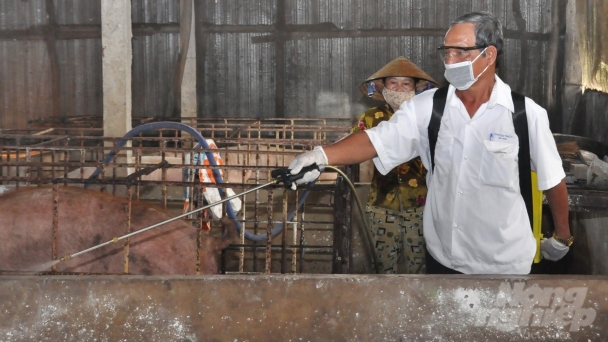
(VAN) The veterinary force is strengthened from the province to the grassroots level, ensuring human resources to control diseases and strengthen food safety control.
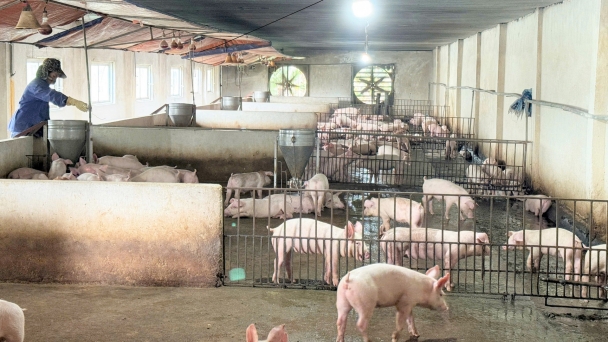
(VAN) After a few months of drastic control, African swine fever has returned to haunt Ha Tinh farmers, as if they are sitting on hot coals.
/2024/09/22/4255-1-222315_766.jpg)
(VAN) Collection of pesticide packaging is currently being carried out in many countries on all inhabited continents, with impressive numbers.
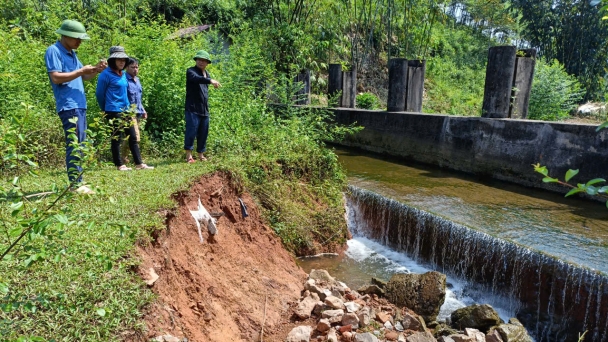
(VAN) There was a large number of irrigation works damaged after Typhoon Yagi, while maintenance and repair funds were limited. Many localities had to ask the Central Government for reconstruction support.
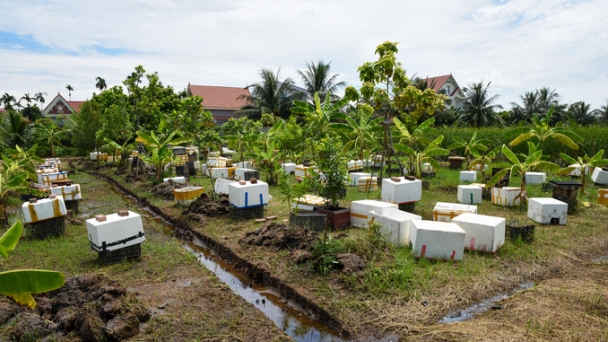
(VAN) Since the mangrove forest started protecting against waves, Dai Hop has not suffered from dike breaches or floods like before, providing endless seafood for thousands of locals who fish in the forest.
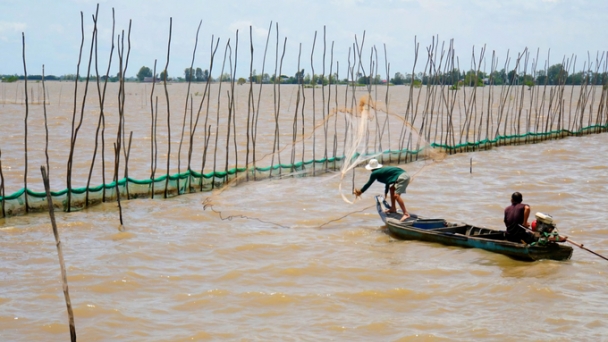
(VAN) Storing wild fish outside the embankment areas, although proven effective in restoring the natural ecosystem, has not yet achieved consistent management across districts and towns.